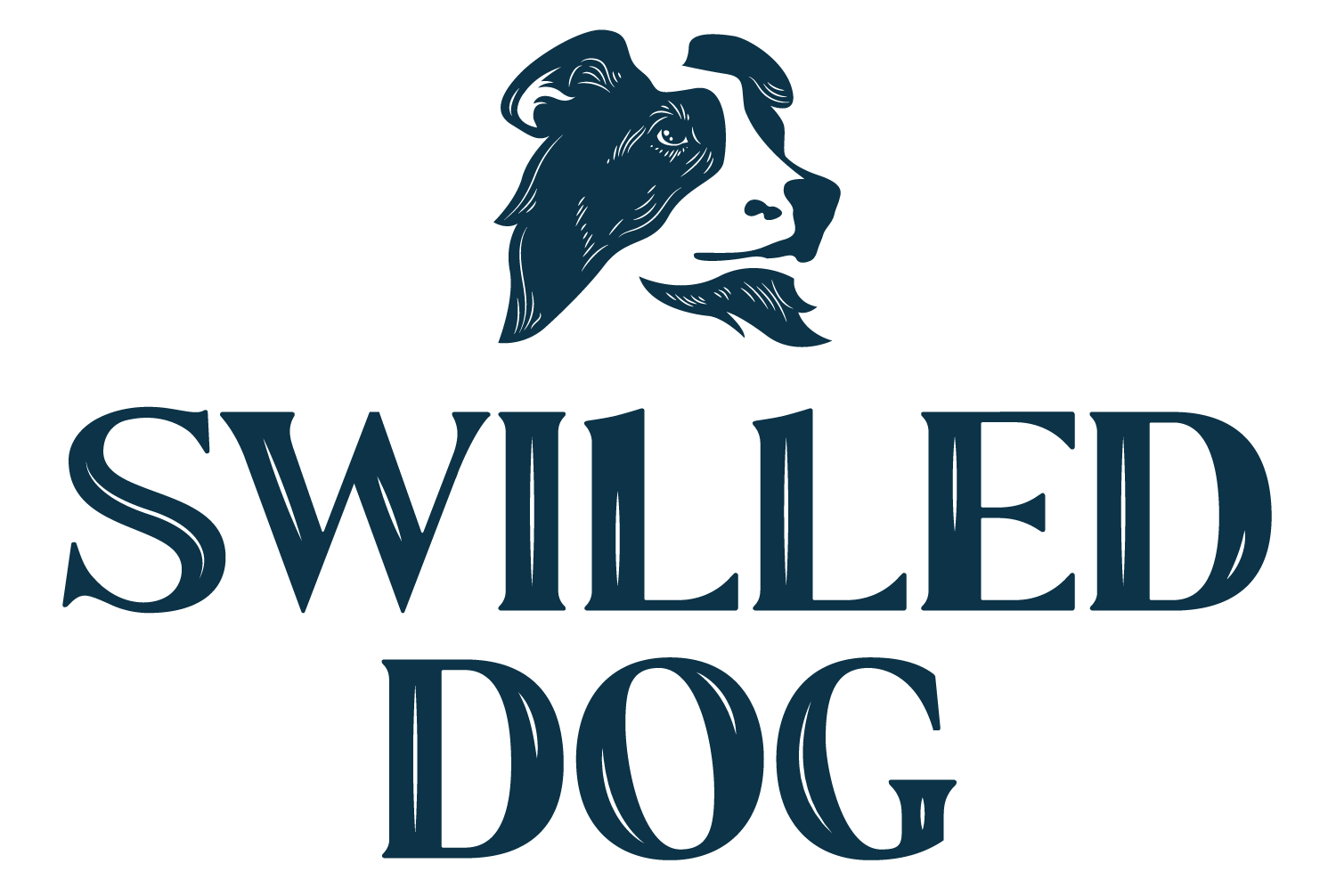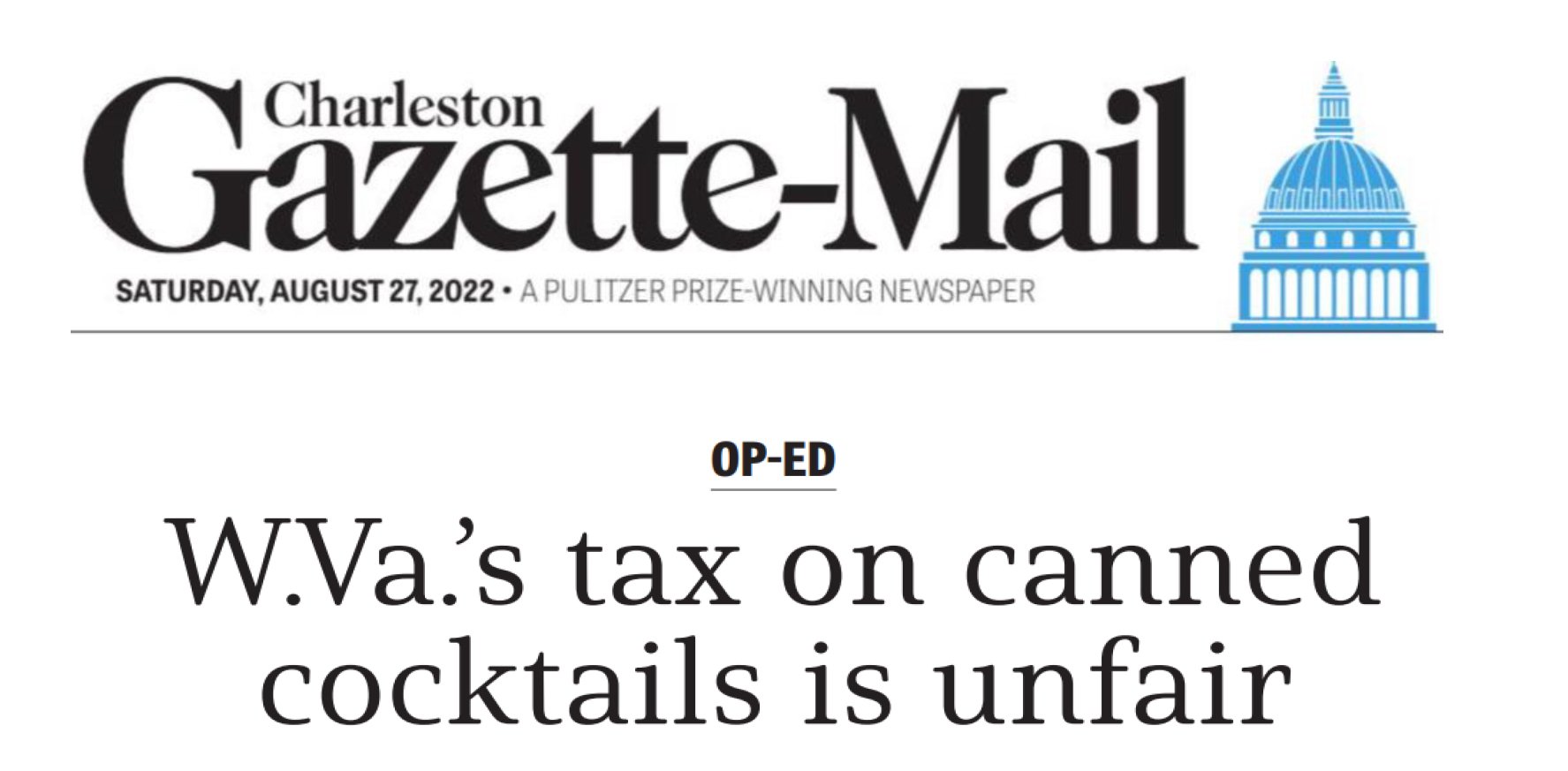CHARLESTON GAZETTE-MAIL | WV’s tax on canned cocktails is unfair
By Brooke Glover
When we started our craft cidery in 2016 in West Virginia, and later our craft distillery in 2019, we committed ourselves to making quality beverages that bring friends and family together.
Before long, with the onset of the COVID-19 pandemic, we learned that there was growing interest in adding to our offerings by producing canned cocktails to allow our customers to recreate the experience of a craft cocktail in the comfort of their own home. In response, we created black cherry and pineapple vodka sodas that our customers have grown to love.
But as much as our customers enjoy them, they don’t understand why these products are priced so much higher than other canned, low alcohol-by-volume (ABV) products that are on the shelf. The answer is an unfair tax code that is punishing small businesses, craft distillers and their customers in West Virginia and around the country.
The federal and average state excise tax rates on spirits-based canned cocktail products are more than double the rates for beer and popular malt- and sugar-based canned seltzer drinks, even though our vodka sodas, like many others on the market, have the same or lower ABV than an average beer or malt-and sugar-based seltzer.
In fact, in West Virginia our 4.5% ABV vodka sodas are taxed at a much higher rate than our 6.9% ABV cider or an 8% ABV lager.
Artisan distillers, independent retailers and consumers are all feeling the squeeze from these tax disparities. After state and federal taxes are added and marked up at every step of the distribution process, a four-pack of our canned vodka sodas costs about the same as a six-pack of beer—and the price would be even higher if we didn’t lower the recommended retail rate, eating into our margins, to stay at least somewhat competitive and encourage retailers to put us on the shelf.
But most distillers can’t afford to do this, which is why customers often see a package of spirit-based canned cocktails from their favorite local distiller priced as high as $20, even though a comparable pack of malt-based seltzer is less than $10.
Despite strong demand, many of our craft distiller counterparts simply can’t afford to compete in such an unfair market, so they stay on the sidelines. That harms competition and limits job growth in our state and others.
Alcohol is alcohol is alcohol—that’s a scientific fact. A 12 ounce 5% ABV beer has the same amount of alcohol as a 12 ounce 5% ABV ready-to-drink cocktail made with vodka, whiskey or rum. So why does the government give some forms of alcohol an unfair advantage over others? I have yet to hear a logical, common sense or science-based answer.
Thankfully, policymakers across the country are starting to take a hard look at these disparities. Michigan, Vermont and Nebraska have already reduced taxes on low-ABV spirits-based canned cocktails, and other states are considering similar changes. In West Virginia, the state legislature this year passed a resolution to study the issue, with a report to be issued in the next legislative session in 2023. We hope that report leads to action.
Despite the differing tax treatment, we are continuing to invest in these products to stay true to our goal of creating delicious beverages for our customers. And we are proud of the contributions we are making in West Virginia and in the communities around our home. Not only do we buy and source from local farms as much as we can, but the corn that goes into our spirits comes directly from the fields next to our facility. And we are pleased to give a portion of our proceeds to local charities we believe are making a difference.
But as long as these tax policies are in place, we won’t be able to be truly competitive, grow, hire and continue giving back. It’s time for our legislators to revisit this unfair tax on spirits-based canned cocktails, so we can get on with doing what we do best: creating craft spirits and beverages that our customers enjoy.
Brooke Glover is co-founder and CEO of Swilled Dog, a craft distillery and cidery based in West Virginia.


